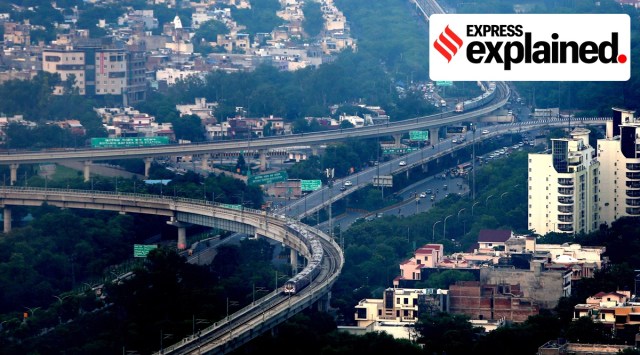- India
- International
Explained: What will change with the reunification of the MCDs in Delhi?
The first administrative step for the proposed unification of the MCDs would be to nullify their boundaries, which could be the "easiest task" in this process.
 The unification of Delhi's three MCDs will come into effect from May 22. (Express Photo: Gajendra Yadav, File)
The unification of Delhi's three MCDs will come into effect from May 22. (Express Photo: Gajendra Yadav, File)The Delhi Municipal Corporation (Amendment) Act, 2022 will come into effect from May 22, and the three Municipal Corporations of Delhi will be formally merged, the central government said in a notification issued on Wednesday (May 18).
How will the MCD unification be executed?
The first administrative step for the proposed unification of the MCDs would be to nullify their boundaries, which could be the “easiest task” in this process. “Unlike the MCD trifurcation in which fresh maps had to be drawn, now one has to just declare that it all comes under one corporation,” a senior BJP leader said.
The next step would be to bring the employees of the three corporations under one umbrella. While the number of the lower-rank staff will not change much, the numbers of higher-rank posts could decrease by a third. For example, there will be one director for each department such as horticulture, sanitation, education, health, hospital, etc. in the unified corporation instead of the existing three directors, one for each of the three MCDs. The same will apply to commissioners, committee heads, and mayors.
Senior BJP leaders have said that among the reforms that are being considered is direct election of mayor with the tenure being increased to at least two-and-half years instead of the existing one year, and provisions for allocation of funds directly from the Centre.
How will the MCD’s finances be impacted by the unification?
All three corporations are currently gripped by financial crises, even though the East and North MCDs are worse affected than the South MCD.

The combined budget deficit of the East and North MCDs exceeds Rs 2,000 crore. The South MCD was solvent until a couple of years ago, but it too has come under financial stress now — and has a budget deficit of Rs 500 crore, a senior south corporation official said.
The total annual income of the three corporations from their own revenues is around Rs 6,700 crore, while the total annual salary and pension expenditure for their combined 1,60,000 employees amounts to Rs 8,900 crore. “If the corporations are merged, the civic body would be able to save around Rs 200 crore by decreasing the number of officers and renting out some spaces that will be vacated,” a senior official said.
So, will the savings following unification be enough to improve the MCD’s financial health?
It is not just about money, Yogendra Singh Mann, former director of the North MCD’s press and information wing, said — unification would result in “a lot of other advantages”.
According to Mann, “Firstly, there would be a balance of resources, income, and expenses. Currently, North regularly suffers from a delay in the payment of salaries. After the unification, there will be uniformity.” Also, with a centralised authority for things like parking rates, property tax, and new initiatives for the city, planning would be better, Mann said.
An East MCD official, however, said that unification alone would not help until other problems are fixed. “The financial arrangements need to be worked out. The corporations must be given their dues and planning on remunerative projects needs to be done,” the official said, adding that “the planning, if done well, will help the MCDs recover, else it will harm all the three MCDs’ financial condition”.
That is the economic part. What about the politics of reunification?
The trifurcation of the erstwhile civic body in 2012, when the Congress ruled Delhi, was intended to “decentralise” the mammoth MCD. However, it was also a political move to fix civic body boundaries in such a way that the Congress could make inroads into the MCD, which had become a BJP bastion.
Ten years later, it appears to be deja vu. While the BJP continues to rule the MCDs now, it sees political gains in consolidating their boundaries.
So what does the BJP hope to gain from the merger of the MCDs?
The BJP-run MCDs have claimed they have been starved of funds by the AAP-led Delhi government. “The unification move would help the BJP send out a message to the public that they can fix the MCDs’ funds crisis if voted to power again,” a party leader said.
The party hopes to “run the corporation after the merger in a better way with employees’ salaries being given on time, and new initiatives taken”. This, it believes, will establish that trifurcation is at the root of the crisis, and that the reunification has corrected a “historical wrong”. In the BJP’s calculation, this could help it put up a fight against the resurgent AAP in the civic body elections.
The appointment of a Special Officer, alongside the amendment that makes the civic body answerable the the Centre alone, is also being seen as a way for the Centre to exercise more control in Delhi.
Newsletter | Click to get the day’s best explainers in your inbox
More Explained
EXPRESS OPINION
Apr 26: Latest News
- 01
- 02
- 03
- 04
- 05









































